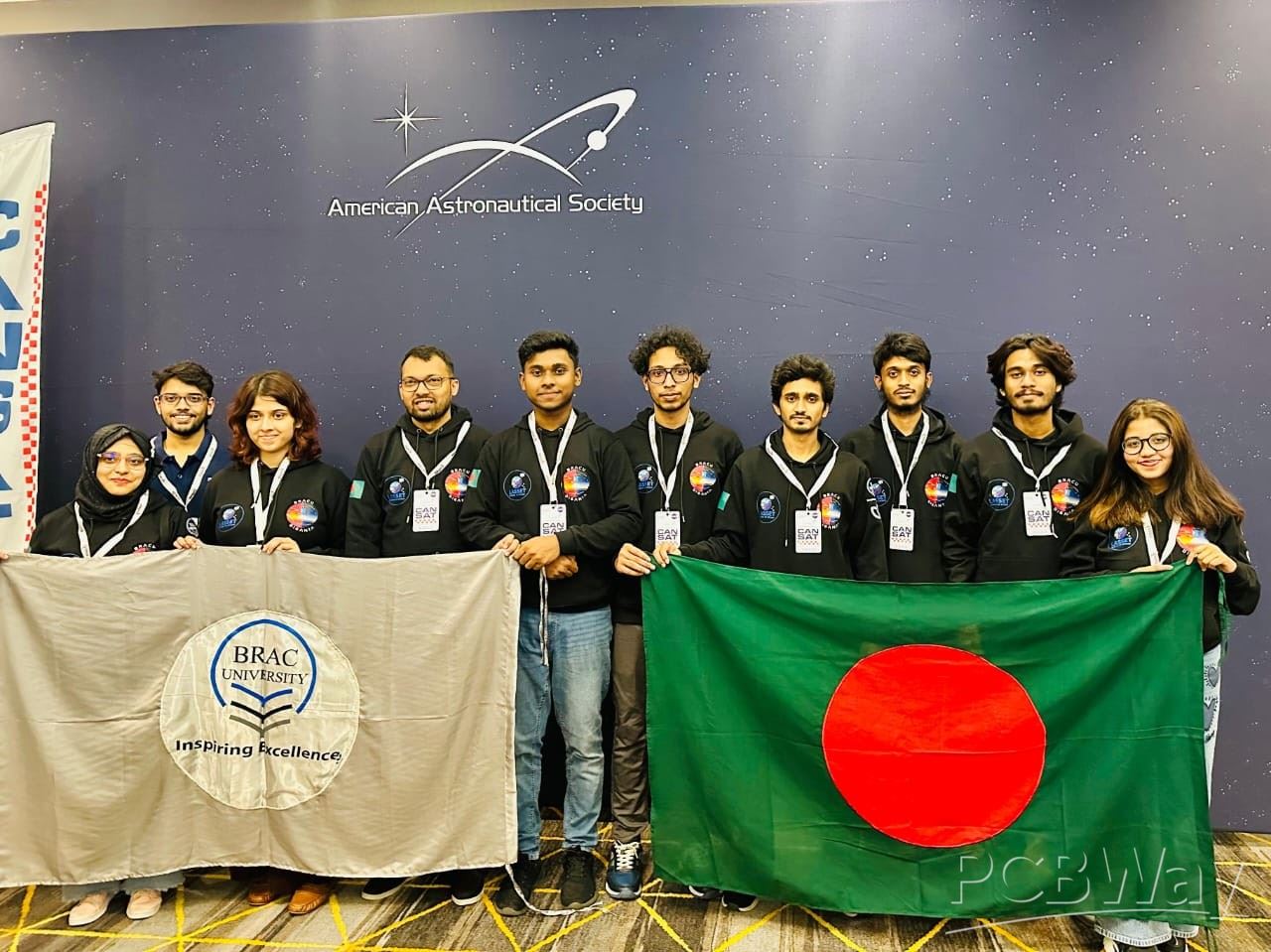

BRACU Diganta
BRACU Diganta
BRACU Diganta is a undergrad student-led CanSat research and development team under the Laboratory of Space System Engineering and Technology (LaSSET) at BRAC University, Bangladesh. Our multidisciplinary team of undergraduate students from Electrical, Mechanical, and Computer Science backgrounds works to design and build satellite prototypes and supporting systems, including custom PCBs, mission payloads, flight computers, and ground stations. Our vision is to make space and STEAM (Science, Technology, Engineering, Arts, and Mathematics) education accessible and affordable in developing countries like Bangladesh.
Competitions, Publication and Outreach
We were proud participants in the International CanSat Competition 2025 organized by the American Astronautical Society(AAS) and NASA, where we were among 30 teams selected for the final launch out of 65 teams from 17 countries in Virginia, USA. The mission was to develop a CanSat with Autogyro Descent Control System for descent.
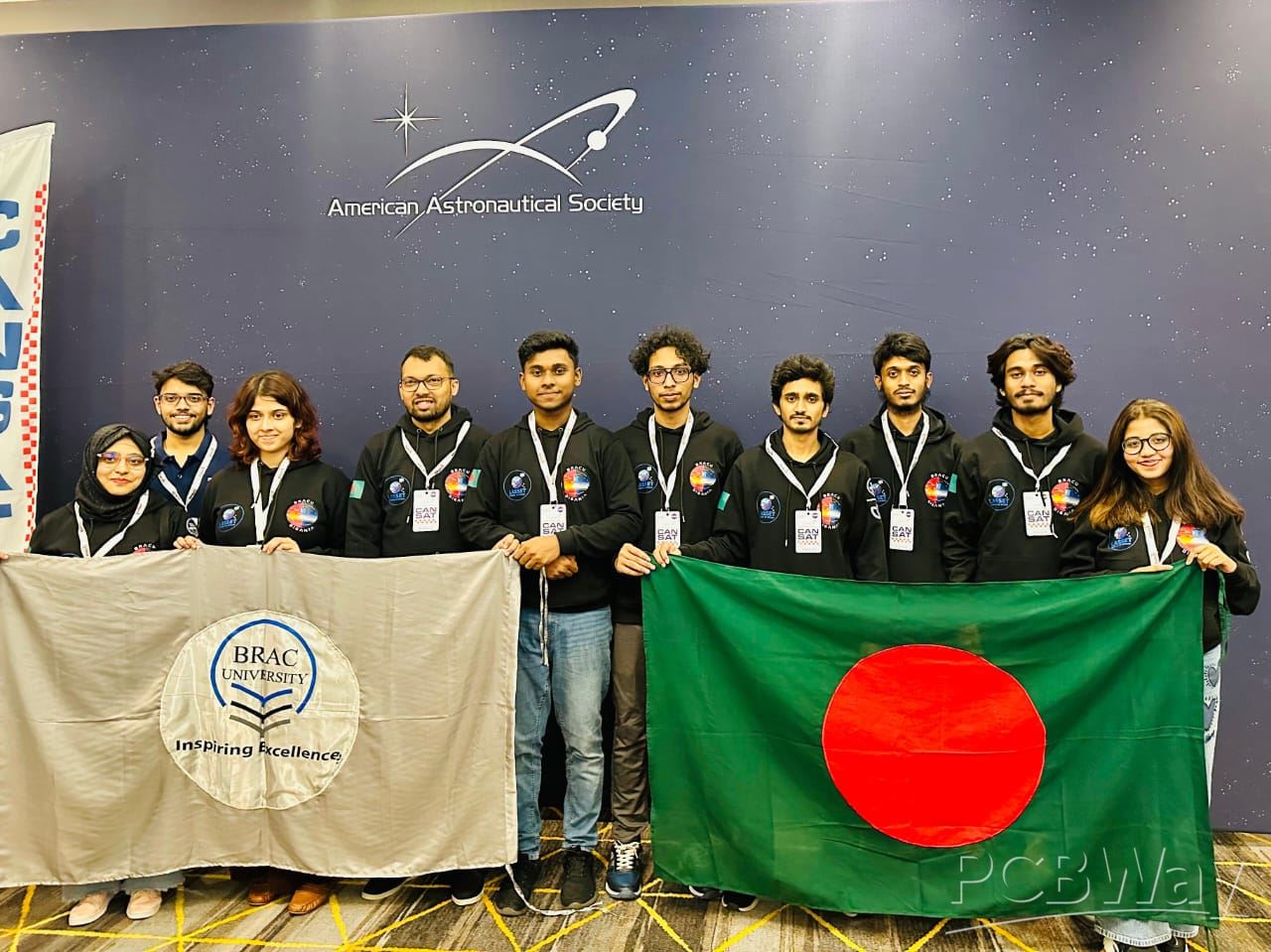
Figure: Team BRACU Diganta at Virginia, USA
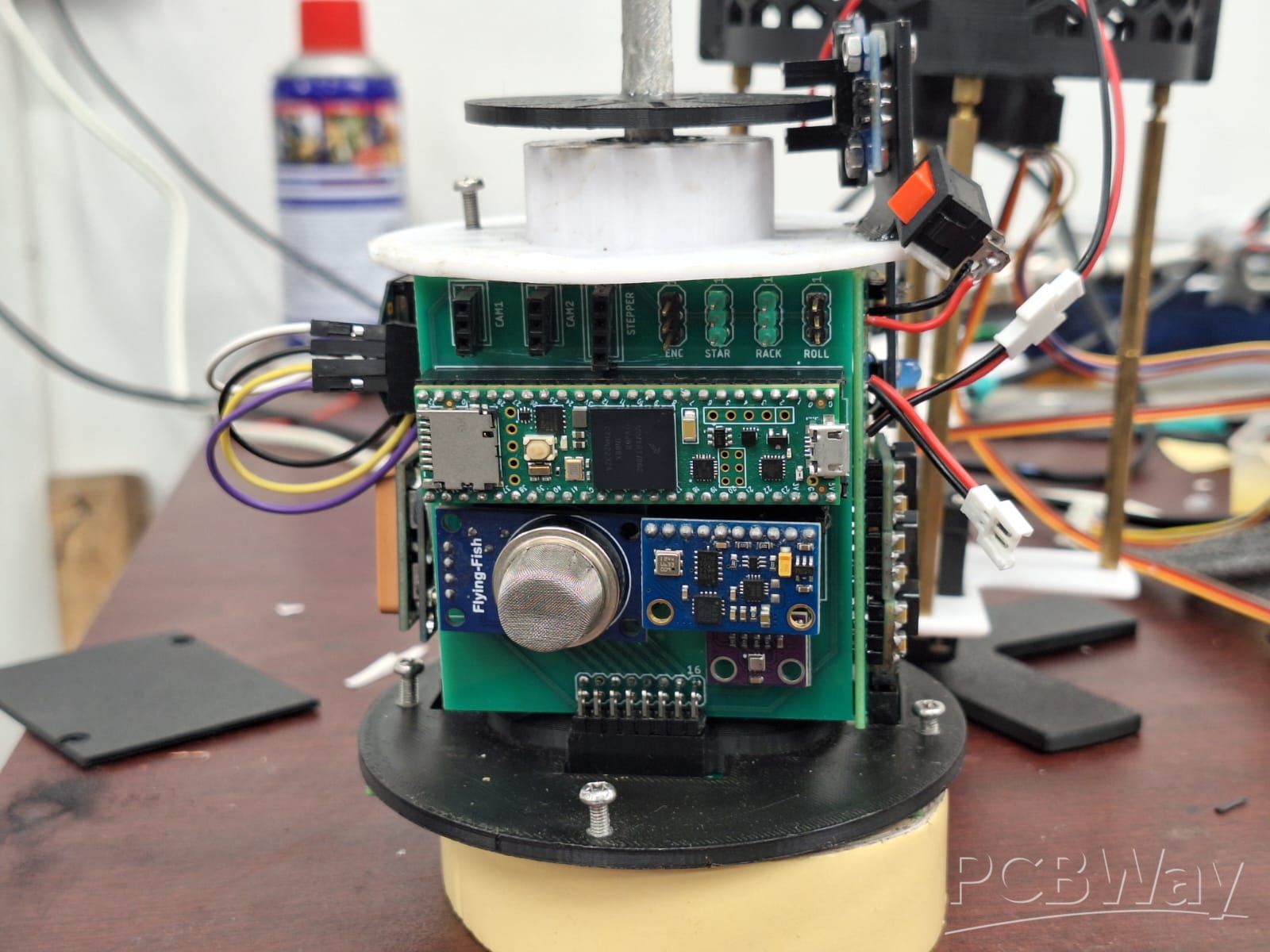
Figure: CanSat developed by BRACU Diganta
We also have two publications on Descent control system and CanSat training kit, accepted at the International Astronomical Congress (IAC) 2026, Sydney. Beyond research, we conduct voluntary seminars and workshops using our self-developed CanSat learning kits to promote STEAM education and space science awareness among students in Bangladesh. These initiatives are entirely non-profit, aimed at inspiring and training the next generation of engineers and innovators.
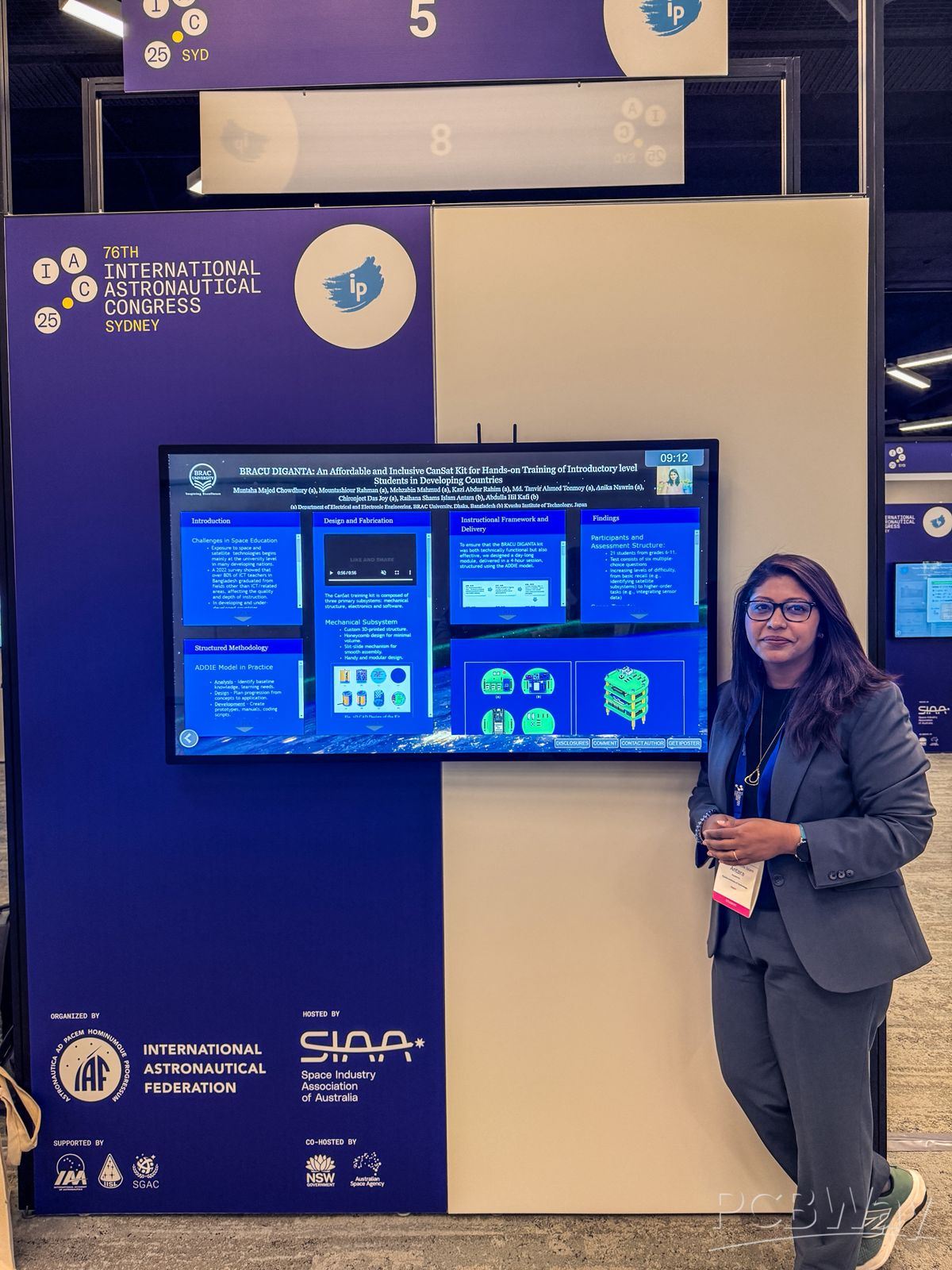
Figure: Conference Paper Present by our Co-advisor Raihana Shams Islam Antara
Training Kits
Our team has designed two learning kits: the CanSat Learning Kit and the CanSat Learning Kit Mini. Each kit includes four fundamental satellite subsystems - Electronic Power System (EPS), Onboard Computer (OBC), Sensor Board (SNS) and Payload (PLD) with a antenna deployment mechanism and custom web based Graphical User Interface (GUI). The kits use a custom designed 3D-printed body that is nearly screwless for easy assembly, with stacked PCBs for beginner level integration. All materials and electronic modules are sourced locally to ensure easy repair and maintenance. An expendable version is also in development. The onboard computer is driven by an ESP32, paired with an MPU6050 IMU sensor, M6N GPS and BMP280 barometer providing hands-on experience in satellite electronics, programming, and system integration.
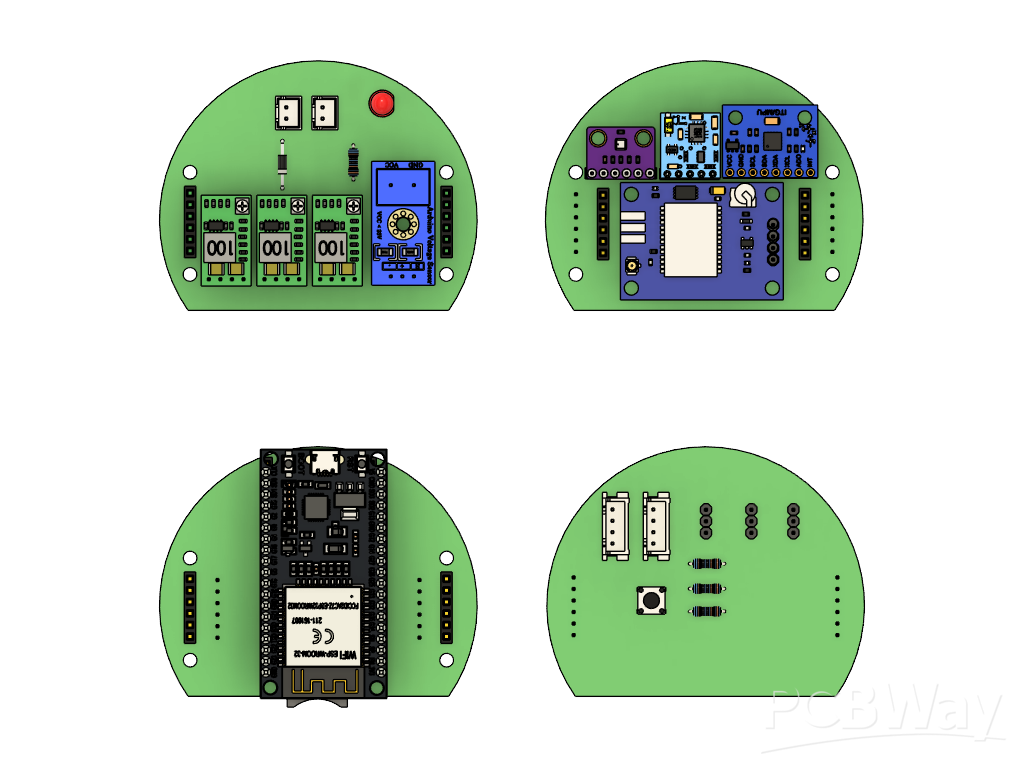
Figure: CAD of the four subsytem
We have already created veroboard prototypes and conducted a workshop with students. To expand our outreach and make hands-on space education widely accessible, we need your support for manufacturing high-quality PCBs for these kits.
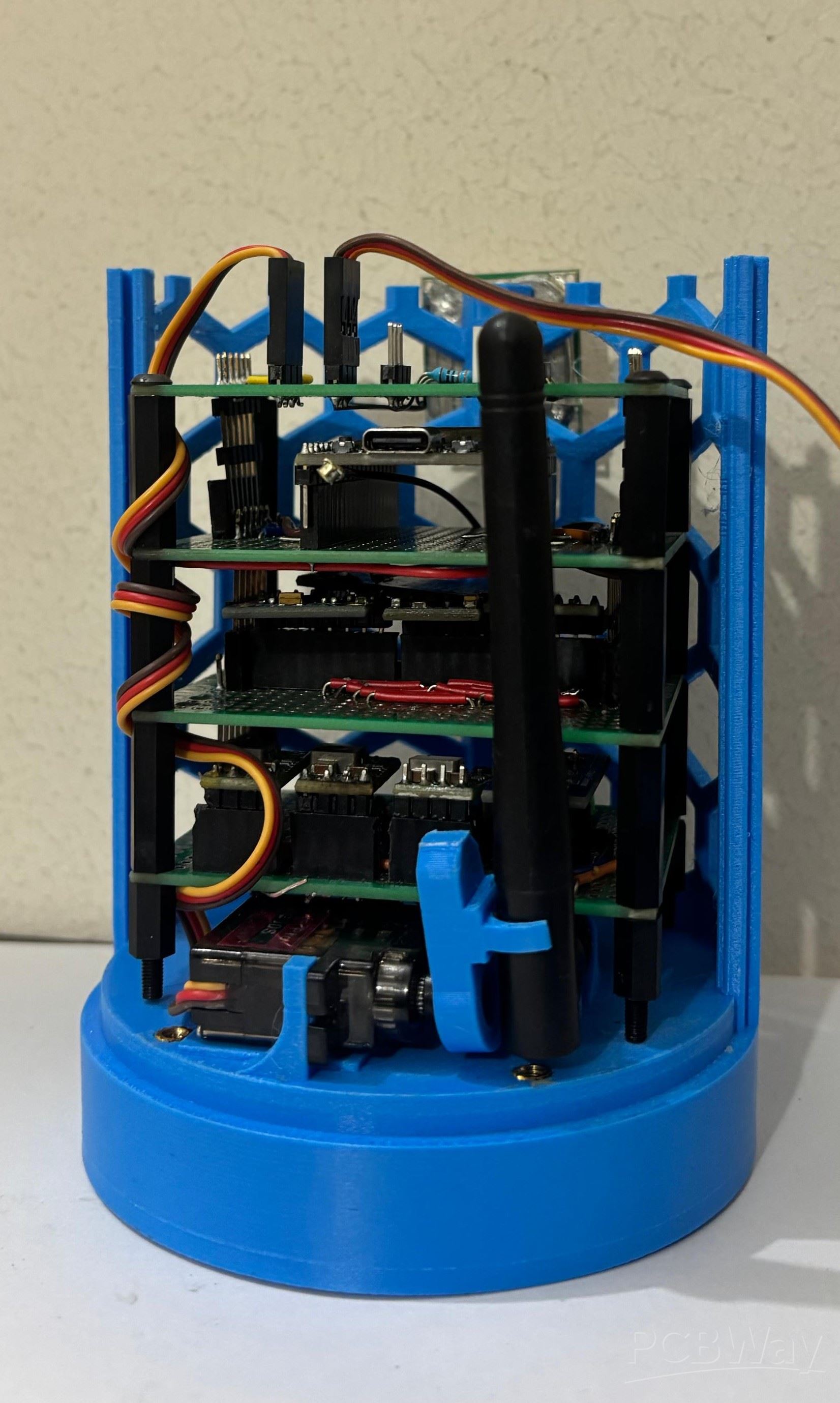
Figure: Veroboard prototype
With PCBWay’s support, we aim to enhance the quality and reliability of our PCBs, accelerate development, and bring the excitement of space and STEAM education to students across Bangladesh.
- CanSat
- satellite
- space
You might like
- Comments(0)
- Likes(1)
-
-
-
 Engineer
Engineer
-
